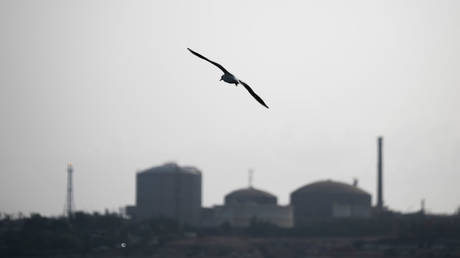Middle East Supply Concerns Cause Spike in Oil Prices
Crude prices have hit their peak since late August due to worries that the conflict in the Middle East may escalate.. source:TROIB RTS

Global oil prices increased on Friday following Israel’s invasion of Lebanon and Iran’s missile strikes on Israel, which have created significant volatility in energy markets.
The Brent benchmark saw a rise of 1.8% on Friday, reaching $79 per barrel as of 10:43 GMT, marking its highest point since August 30. Meanwhile, West Texas Intermediate crude increased by 1.3%, trading at $75.
Market reactions have been driven by concerns over possible interruptions in crude oil supplies from the Middle East due to the ongoing conflict. Oil prices surged by 5% on Thursday after Israel hinted at targeting Iranian oil facilities in retaliation for Tehran’s missile attacks earlier in the week.
Goldman Sachs analyst Daan Struyven expressed to CNBC that oil prices could potentially rise by $20 per barrel if Iranian production decreases by at least one million barrels per day as a result of any targeted strikes.
Bjarne Schieldrop, Chief Commodities Analyst at Swedish banking group SEB, suggested to the media that oil prices could climb beyond $200 per barrel if Iran's energy infrastructure is significantly damaged.
In recent developments, Iran’s Islamic Revolutionary Guard Corps launched around 200 missiles at Israel, claiming this was retaliation for the bombardments of Gaza and Lebanon, as well as the recent deaths of Hamas and Hezbollah leaders at the hands of the Israel Defense Forces.
Earlier in the week, the IDF conducted ground operations against Hezbollah in southern Lebanon, asserting that these actions, combined with heavy airstrikes, are intended to stop cross-border rocket and mortar attacks by the group.
The conflict between Israel and Hamas reignited last October after a deadly attack by Hamas into southern Israel, which prompted an extensive military response from the IDF in the Palestinian territory. Hezbollah has pledged its support for the Palestinians and indicated that it will continue its cross-border rocket attacks until a ceasefire in Gaza is established.
Israel aims to completely “eliminate” Hamas and has consistently disregarded public appeals from Washington to initiate a ceasefire.
Allen M Lee for TROIB News
Find more stories on Business, Economy and Finance in TROIB business












